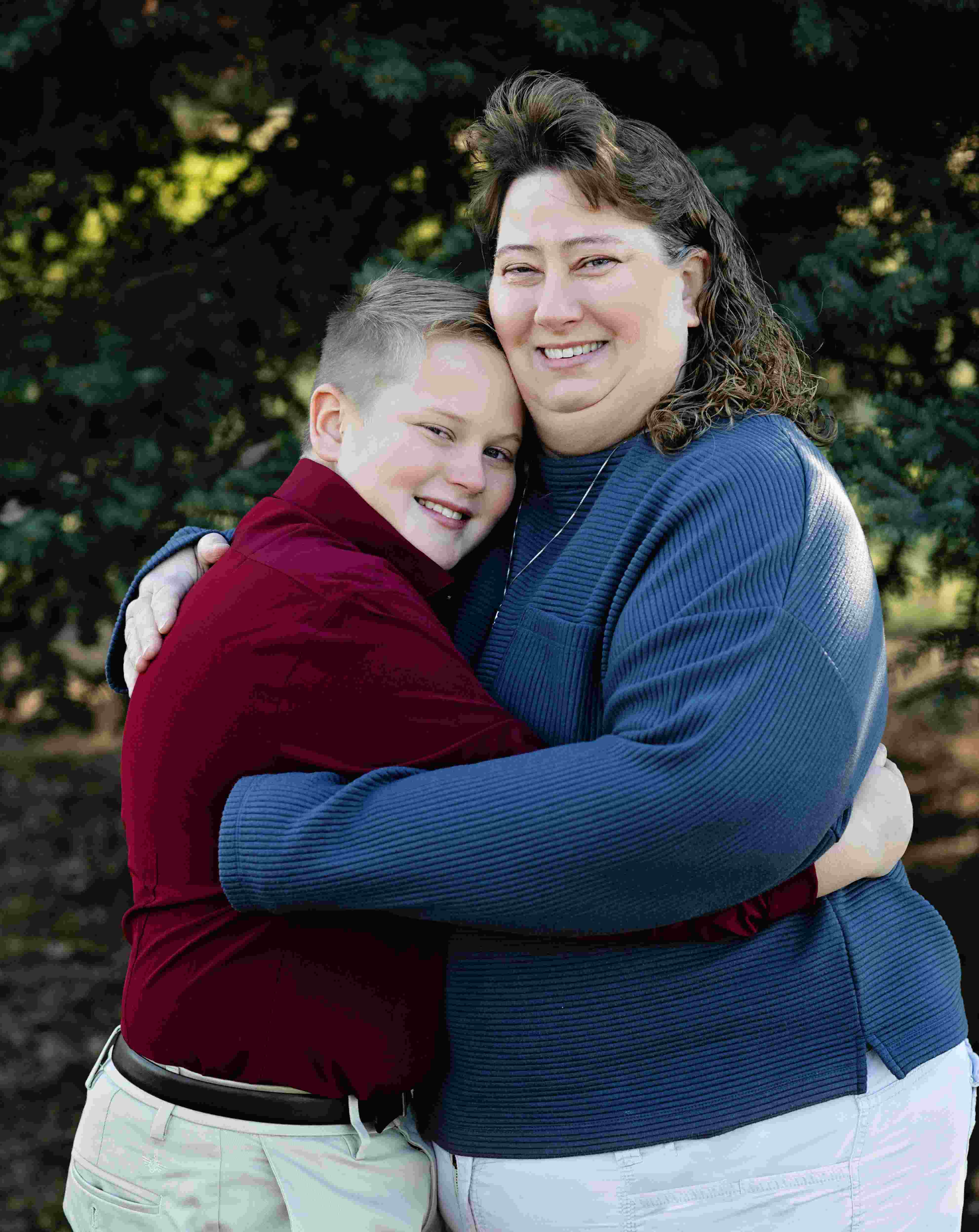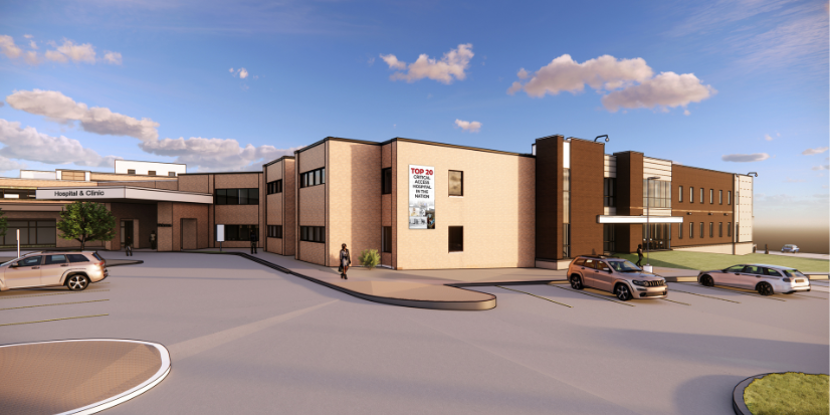Lifesaving Decisions: Who Does Your Heart Beat For?
- Posted On:

“ Trust your gut. I did, and now I get to continue watching my family grow,” stated Lisa. “It could just save your life.”
Lisa Swanson, the Harlan Community High School technology director, was sitting at her desk one fall day in 2021 when something didn’t feel right.
Sensing she was coming down with something, Lisa decided to go home and take it easy. She sat in her recliner, but the feeling started to get worse. At 5:30 p.m., a pain began in the center of her chest, but she brushed it off as heartburn. She asked her husband, Chad, to go to the store and purchase Pecid AC. Soon after, Lisa started vomiting. Thinking the pain could still be indigestion, she decided to lie down in bed.
Only minutes after lying down, her hands became numb and the chest pain intensified; she couldn’t shrug off the feeling any longer. Although Lisa wasn’t sure if her condition was serious, she told her husband that she needed to go to the emergency room. This decision may have saved her life.
When Lisa arrived at Myrtue’s ER, an EKG exam was done immediately by the ER nurse and tech. Patrick Pucelik, ARNP, evaluated Lisa and the EKG exam within 10 minutes. The EKG showed she was having a heart attack.
The Cardiac Team at Methodist Jennie Edmundson was notified and a transfer was arranged immediately.
“When the practitioner at Myrtue told me that Jennie Ed wanted Lisa taken down to their cardiac unit immediately, I felt helpless and gut punched,” said Lisa’s husband, Chad. “But, at the same time, watching everyone in her room working to make sure she was getting the best care possible, gave me a semblance of ease. Ninety minutes after stepping through the doors at Myrtue, she was at Jennie Ed with two stents and feeling 100% better. I quickly went from gut punched to overwhelming relief.”
“To be honest, I was in shock,” Lisa stated.
Lisa turned 50 in September, never experienced heart problems before, and doesn’t have any family history of heart attacks. Even so, she witnessed early death by both of her parents. Lisa’s father was hit by a drunk driver when she was 12, and her mother passed away from Osteosarcoma when she was 19. In one year, Lisa will outlive them both, and she couldn’t help but think of them during her ambulance ride to Council Bluffs.
“It’s always on my mind,” Lisa said, regarding her parents’ passing. “Every birthday, every special event.”
Thankfully, the team at Methodist Jennie Edmundson was ready for her arrival and able to treat her almost instantly. She was wheeled by the Medivac paramedics into the cath lab where cardiologist, Dr. Thomas Brandt, assessed her condition. Within 19 minutes, the artery was opened.
Dr. Brandt, who also provides cardiac care and sees patients in Myrtue’s Specialty Clinic, said the speed of Lisa’s care was phenomenal. Even with current state-of-the-art technology, it all began with her deciding to get help.
“The timeliness of treatment of a heart attack depends on you recognizing you’re in trouble, getting to a medical facility so they can recognize what’s going on, and getting you to the appropriate place,” Dr. Brandt said.
Getting patients to the appropriate place is exactly what Myrtue Medical Center excels at. It is why the American Heart Association presented Myrtue with the Mission: Lifeline Gold Plus Achievement Award in September — a first for any Iowa critical access hospital, and one of five bestowed nationally. This award recognizes critical access hospitals that have met or exceeded recommendations in treating patients with severe heart attacks, called STEMI heart attacks.
While the STEMI Gold Plus award is one of the top honors to receive in cardiac care, the lifesaving response begins with the patient making the decision to seek help. Dr. Brandt urges people to follow Lisa’s example. “Once you realize you’re having problems,” Dr. Brandt said, “it’s necessary to be seen as soon as possible — even if the symptoms don’t appear life-threatening.”
“People need to realize that a heart attack doesn’t always present with severe chest discomfort and pain. It can present as shortness of breath, weakness, nausea, vomiting, or just not feeling well,” Dr. Brandt stated.
Lisa has completed Myrtue’s cardiac rehab, which includes exercising under supervision three times per week and eating a healthier diet. This is just the beginning of her heart health journey, and she has words of advice for people who aren’t sure if they should go to the hospital and get checked out.
“Trust your gut. I did, and now I get to continue watching my family grow,” stated Lisa. “It could just save your life.”


